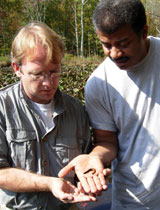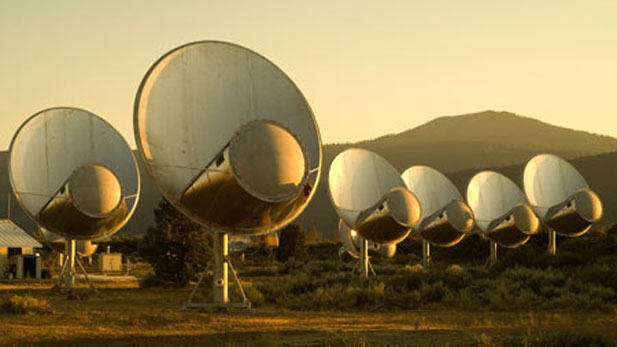
Leeches Leeches, those innocent bloodsuckers, have been bad-mouthed to the point that they’ve become synonymous with obnoxious freeloaders. Even host Neil deGrasse Tyson is creeped out while wading through leech-infested waters with scientist Mark Siddall, who runs the leech lab at the American Museum of Natural History. Siddall notes that leeches are far less dangerous than mosquitoes and ticks as disease spreaders.

SETI In 1960, a curious astronomer named Frank Drake aimed a radio telescope at a couple of nearby stars and started listening. More than 40 years later, we’re still listening, and SETI — the search for extraterrestrial intelligence — has just expanded big-time to begin the systematic survey of millions of star systems for signs of advanced civilizations. NOVA scienceNOW reports on this impressive new effort, called the Allen Telescope Array.
Stem Cells Researchers around the world are touting a possible new way of creating embryonic-like stem cells — without the embryo. Japanese researchers were the first to discover a way to “turn back the clock” on adult skin cells to create what look like embryonic stem cells — special cells normally found in a growing embryo that have the ability to become any type of cell in the body. Building on the Japanese discovery, U.S. researchers have since been creating these stem cells from human skin cells, with the hopes of possibly using these cells to understand diseases like diabetes, Alzheimer’s and Parkinson’s.
Edith Widder Go for a deep-sea dive with a scientist who is seeing things never before recorded on the ocean floor. Edie Widder is a specialist in marine bioluminescence, the biochemical emission of light by ocean animals that can light up the murky depths to an astonishing degree. Widder is doing some lighting of her own with an innovative camera system called the “Eye in the Sea,” which uses a wavelength of light invisible to sea creatures.
See previews and find out more at pbs.org
Watch it Wednesday, July 23rd at 8pm on KUAT6 and 9pm on KUAT-HD

By submitting your comments, you hereby give AZPM the right to post your comments and potentially use them in any other form of media operated by this institution.